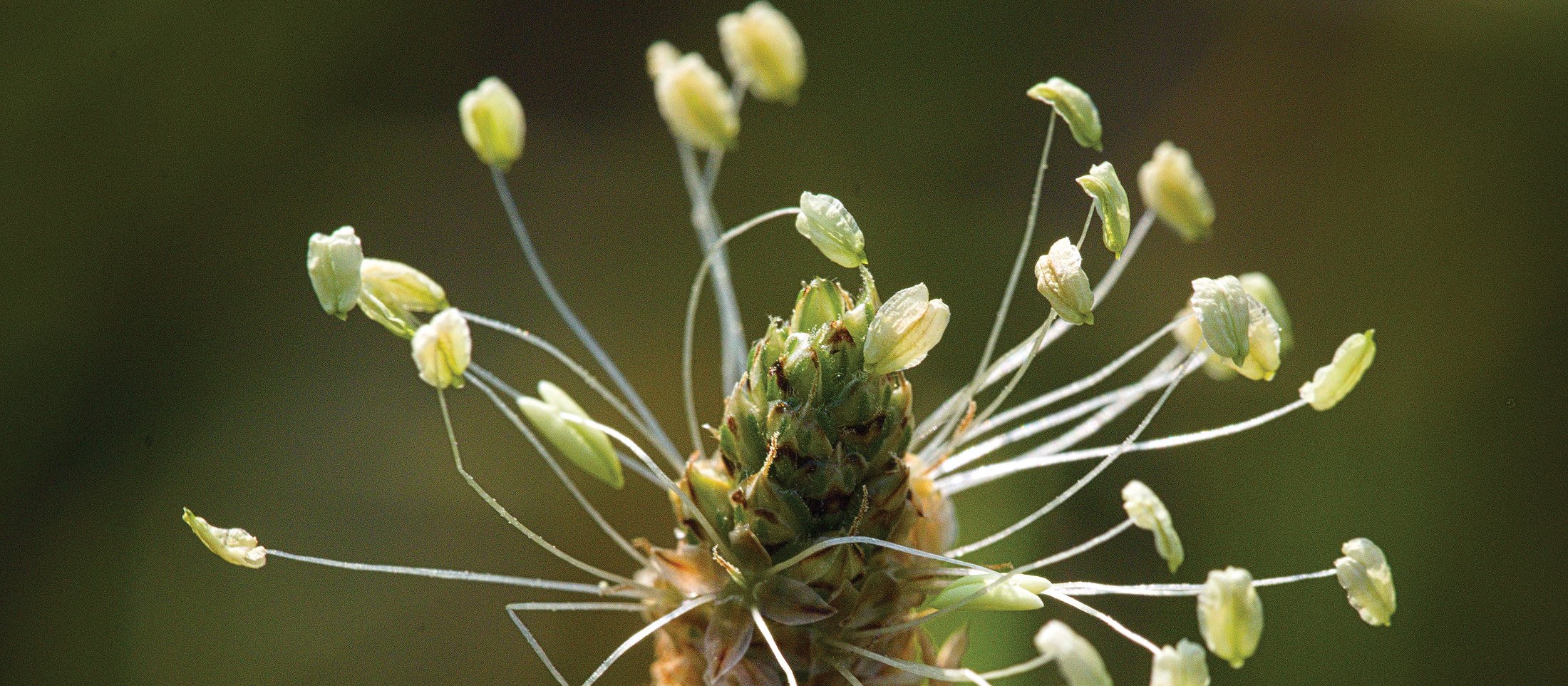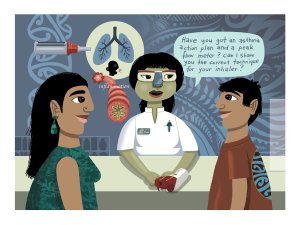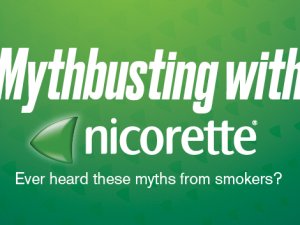Academic pharmacist Nataly Martini discusses the medical management of asthma in adults and adolescents, which has evolved to prioritise early anti-inflammatory treatment. She also explains how to improve patient outcomes by proactively identifying poor asthma control and supporting equitable access to education and treatment
Herbal remedies for allergic rhinitis
Wednesday 1 September 2021, 01:15 AM

Ribwort preparations may be effective in treating inflamed sinuses. (Image: hedera.baltica, CCSA 2.0,via Wikimedia Commons)
When the drugs don’t work, customers often turn to natural solutions for their hay fever. Pharmacist and medical herbalist Phil Rasmussen runs through some of the most effective plants for this often debilitating condition
There is convincing evidence that many different herbal medicines and traditional herbal formulations can be effective treatments for allergic rhiniti
Kia ora and welcome to Pharmacy Today Kaitiaki Rongoā O Te Wā
Not a subscriber? Unlock this article by subscribing here.
References
- Yang L, Fu J, Zhou Y. Research progress in atopic march. Front Immunol 2020;11:1907.
- Bayrak Degirmenci P, Aksun S, Altin Z, et al. Allergic rhinitis and its relationship with IL-10, IL-17, TGF-β, IFN-γ, IL 22, and IL-35. Dis Markers 2018;2018:9131432.
- Luo Q, Zhang CS, Yang L, et al. Potential effectiveness of Chinese herbal medicine Yu ping feng san for adult allergic rhinitis: a systematic review and meta-analysis of randomized controlled trials. BMC Complement Altern Med 2017;17(1):485.
- Laccourreye O, Werner A, Laccourreye L, et al. Benefits, pitfalls and risks of phytotherapy in clinical practice in otorhinolaryngology. Eur Ann Otorhinolaryngol Head Neck Dis 2017;134(2):95–99.
- Zheng Z, Sun Z, Zhou X, et al. Efficacy of Chinese herbal medicine in treatment of allergic rhinitis in children: a meta-analysis of 19 randomized controlled trials. J Int Med Res 2018;46(10):4006–18.
- Hoang MP, Chitsuthipakorn W, Snidvongs K. Herbal medicines for allergic rhinitis: a systematic review and meta-analysis. Curr Allergy Asthma Rep 2021;21(4):25.
- Nikakhlagh S, Rahim F, Aryani FH, et al. Herbal treatment of allergic rhinitis: the use of Nigella sativa. Am J Otolaryngol 2011;32(5):402–07.
- Işik H, Cevikbaş A, Gürer US, et al. Potential adjuvant effects of Nigella sativa seeds to improve specific immunotherapy in allergic rhinitis patients. Med Princ Pract 2010;19(3):206–11.
- Hsieh CJ, Hall K, Ha T, et al. Baicalein inhibits IL-1beta- and TNF-alpha-induced inflammatory cytokine production from human mast cells via regulation of the NF-kappaB pathway. Clin Mol Allergy 2007;5:5.
- Bui TT, Piao CH, Song CH, et al. Baicalein, wogonin, and Scutellaria baicalensis ethanol extract alleviate ovalbumin-induced allergic airway inflammation and mast cell-mediated anaphylactic shock by regulation of Th1/Th2 imbalance and histamine release. Anat Cell Biol 2017;50(2):124–34.
- Kim KA, Jung JH, Choi YS, et al. Anti-inflammatory effect of wogonin on allergic responses in ovalbumin-induced allergic rhinitis in the mouse. Allergy Rhinol (Providence) 2018;9:2152656718764145.
- Xu J, Zhang Q, Li Z, et al. Astragalus polysaccharides attenuate ovalbumin-induced allergic rhinitis in rats by inhibiting NLRP3 inflammasome activation and NOD2-mediated NF-κB activation. J Med Food 2021;24(1):1–9.
- Zhang C, Wei P, Kou W, et al. Effect of Astragalus membranaceus on peripheral blood Th17 in patients with allergic rhinitis. 2016;36(11):1364–68.
- Li K, Chen Y, Jiang R, et al. Protective effects of astragaloside IV against ovalbumin-induced allergic rhinitis are mediated by T-box protein expressed in T cells/GATA-3 and forkhead box protein 3/retinoic acid-related orphan nuclear receptor γt. Mol Med Rep 2017;16(2):1207–15.
- Matkovic Z, Zivkovic V, Korica M, et al. Efficacy and safety of Astragalus membranaceus in the treatment of patients with seasonal allergic rhinitis. Phytother Res 2010;24(2):175–81.
- Yamprasert R, Chanvimalueng W, Mukkasombut N, et al. Ginger extract versus Loratadine in the treatment of allergic rhinitis: a randomized controlled trial. BMC Complement Med Ther 2020;20(1):119.
- Casula E, Manca ML, Perra M, et al. Nasal spray formulations based on combined hyalurosomes and glycerosomes loading Zingiber officinalis extract as green and natural strategy for the treatment of rhinitis and rhinosinusitis. Antioxidants (Basel) 2021;10(7):1109.
- Gulledge TV, Collette NM, Mackey E, et al. Mast cell degranulation and calcium influx are inhibited by an Echinacea purpurea extract and the alkylamide dodeca-2E,4E-dienoic acid isobutylamide. J Ethnopharmacol 2018;212:166–74.
- Rasmussen PL. Echinacea, a useful herb for allergies. 14 July 2018. herbblurb.com
- Rasmussen PL. Effects of human pollutants on plants: the case of ribwort. 12 April 2019. herbblurb.com
- Inoue T, Sugimoto Y, Masuda H, et al. Effects of peppermint (Mentha piperita L.) extracts on experimental allergic rhinitis in rats. Biol Pharm Bull 2001;24(1):92–95.
- Inoue T, Sugimoto Y, Masuda H, et al. Antiallergic effect of flavonoid glycosides obtained from Mentha piperita L. Biol Pharm Bull 2002;25(2):256–59.
- Jeong KT, Kim SG, Lee J, et al. Anti-allergic effect of a Korean traditional medicine, Biyeom-Tang on mast cells and allergic rhinitis. BMC Complement Altern Med 2014;14:54.
- Oh HA, Park CS, Ahn HJ, et al. Effect of Perilla frutescens var. acuta Kudo and rosmarinic acid on allergic inflammatory reactions. Exp Biol Med (Maywood) 2011;236(1):99–106.
- Blosa M, Uricher J, Nebel S, et al. Treatment of early allergic and late inflammatory symptoms of allergic rhinitis with Petasites hybridus leaf extract (Ze 339): Results of a noninterventional observational study in Switzerland. Pharmaceuticals (Basel) 2021;14(3):180.
- Brattström A. A newly developed extract (Ze 339) from butterbur (Petasites hybridus L.) is clinically efficient in allergic rhinitis (hay fever). Phytomedicine 2003;10 Suppl 4:50–52.
Medsafe. Complementary Corner: Butterbur and Liver Toxicity. Prescriber Update





